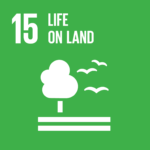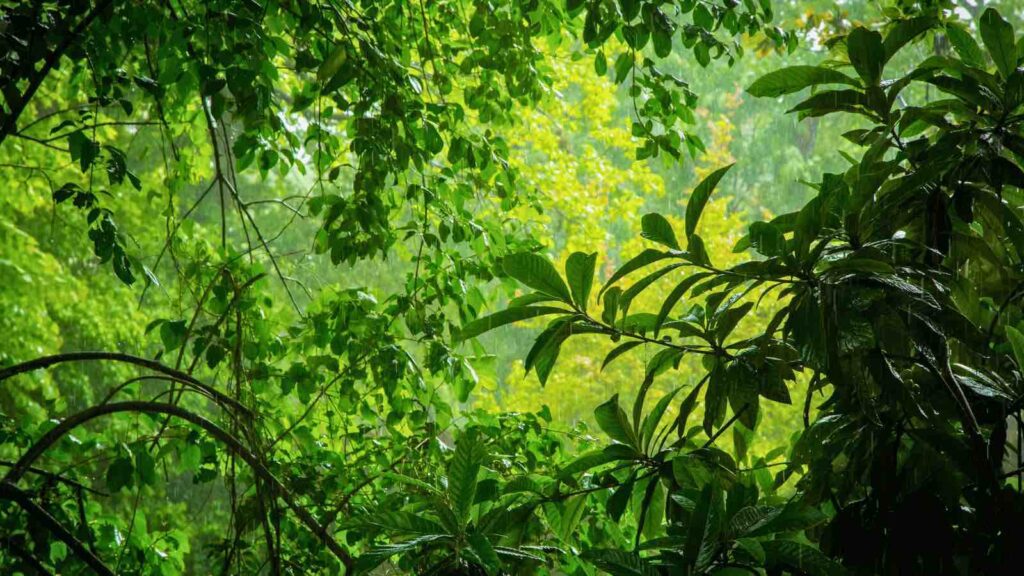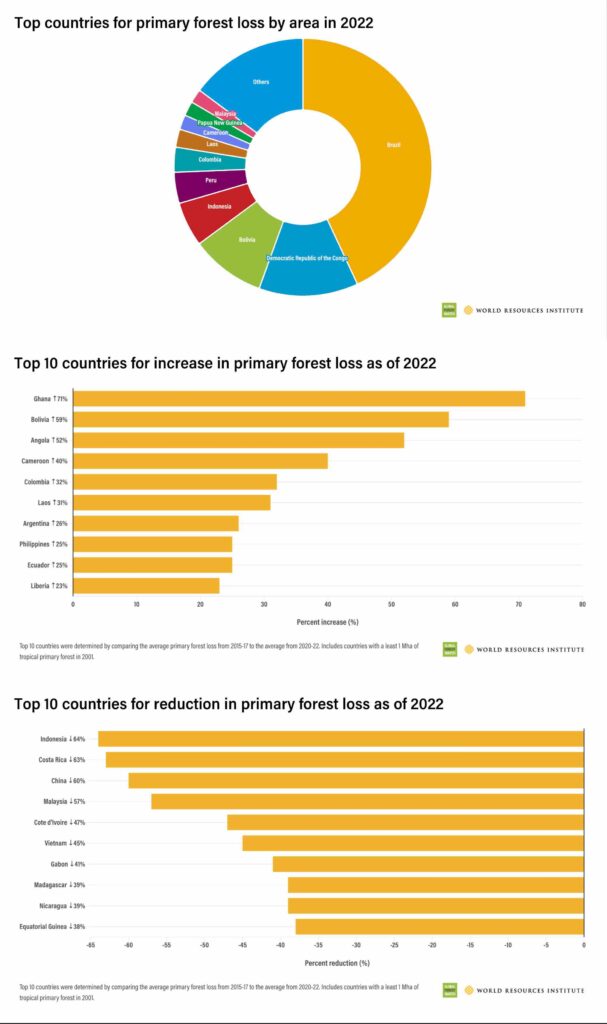Indonesia’s deforestation efforts: pioneering global conservation by leading the charge in reduction rates.
Indonesia, once synonymous with deforestation, is now leading the pack in reducing its rates of primary forest loss. According to recent data from the World Resources Institute (WRI), the country has achieved a significant 65% decrease in deforestation since 2015 – the highest reduction globally during the same period.
What’s behind this environmental turnaround? Two successive presidents committed to greener policies, supported by a plantation sector ready for change, have paved the way towards a more sustainable future. Their collaborative efforts mark a milestone for Indonesia and the global fight against deforestation.
RELEVANT SUSTAINABLE GOALS


Indonesia Is The Model For Reducing Deforestation
The WRI report lauds the Indonesian government’s policies and measures, including increased fire prevention and monitoring, ceasing new licenses on primary forest or peatland, stronger law enforcement, and revitalizing efforts to protect and restore peatlands and mangroves. Such actions have directly contributed to the decrease in forest fires and the overall loss of primary forest.
The government’s rigorous attempts to suppress forest fires have been further bolstered by various factors. These include relatively wet conditions, effective cloud-seeding initiatives by the government and private sector, and proactive on-ground community efforts. Also, it seems that mandatory and voluntary corporate commitments are indeed having a positive impact.
This WRI data aligns seamlessly with the Indonesian government’s estimates, affirming that the country’s deforestation rates have hit an all-time low. The core strategy revolves around the presidential moratoria, introduced by President Yudhoyono in 2011 and fortified by President Jokowi.
Yudhoyono initiated a moratorium on new logging permits in primary forests and peatlands. Despite a planned lifespan of two years, it was extended twice during his tenure, restricting new oil palm plantation development and logging in certain forest areas.
Jokowi not only upheld this moratorium but expanded its scope, improving enforcement and compliance. In 2019, he made the moratorium on new licenses in primary forests and peatlands permanent. Jokowi also enforced a three-year ban on new oil palm plantation permits and launched a review of existing licenses. Further reinforcing his sustainable agenda, he unveiled the National Action Plan for Sustainable Palm Oil (RAN-KSB), aimed at enhancing regulation and enforcement to prevent illegal deforestation and safeguard primary forests and peatlands.
You may also be interested in :
30 Hotspots Detected In East Kalimantan, Calls For Vigilance To Prevent Forest Fires



